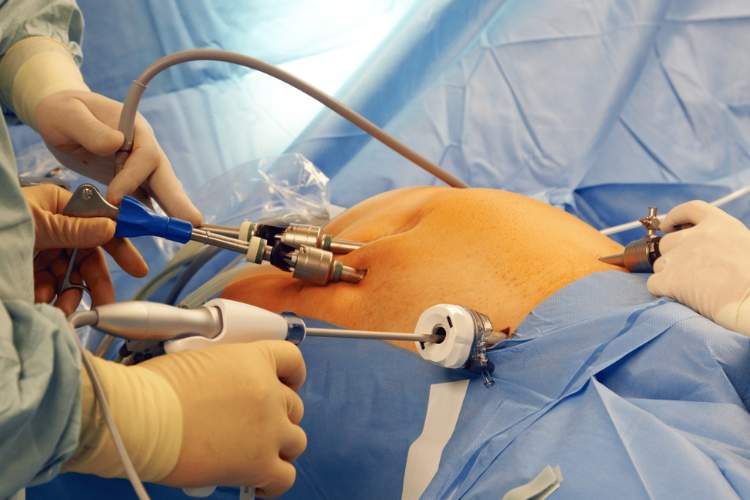
Author- By Dr Shashank Shah
The modern obesity pandemic has brought two groundbreaking interventions to the forefront: bariatric surgery and GLP-1 receptor agonists, such as Ozempic (semaglutide) and Mounjaro (tirzepatide). Both offer promising results in weight loss and metabolic improvement.
But are they equal? When evaluated through the lenses of long-term outcomes, hormonal impact, cost-effectiveness, and real-world utility, the answer becomes nuanced.
Bariatric surgery, once seen as a last resort, is now widely recognized as a scientifically validated, long-term solution for metabolic disease. In contrast, GLP-1-based injections have captured the imagination of patients and physicians alike, presenting themselves as an appealing, non-invasive alternative.
Yet, the critical question remains: are these injectables truly comparable in effectiveness, durability, and value? The answer lies not just in clinical studies, but also in the lived experiences of patients, and in the hard economics of healthcare systems.
Recent studies from the United States indicate that while GLP-1 medications can deliver impressive short-term weight loss, only about 30% of patients continue these treatments beyond one to two years. The majority discontinue use due to high cost, waning effectiveness, or unpleasant side effects.
In contrast, a new paper comparing real-world outcomes (not industry-sponsored trials) found that bariatric surgery led to five times more weight loss than either Ozempic or Mounjaro after two years. This is not a marginal difference; it is a striking one.
The Hormonal Advantage of Surgery
The true power of bariatric surgery lies in its ability to trigger a comprehensive hormonal reset. It’s not simply about reducing the size of the stomach. Surgery reprograms the hormonal signals that travel from the gastrointestinal tract to the brain and pancreas.
Hormones such as ghrelin, GLP-1, PYY, oxyntomodulin, and several others are naturally and rhythmically modulated after surgery. This physiological resetting drives genuine changes in appetite control, satiety, insulin sensitivity, and long-term compliance, without relying solely on a patient’s willpower.
By comparison, GLP-1 medications deliver a synthetic, sustained dose of hormone for 24 hours, often injected into adipose tissue where receptor density is low. The resulting impact is narrower, less coordinated, and ultimately less sustainable.
This difference in mechanism is critical. While bariatric surgery patients often experience reversal of diabetes, hypertension, and high cholesterol within weeks, GLP-1 users may still require statins, uric acid medications, protein supplements, and diabetic drugs, even while on the injectable therapy.
A Financial Reality Check
There is a pressing financial dimension to this discussion that neither patients nor policymakers can afford to ignore.
In India, a patient on semaglutide or tirzepatide can expect to spend between ₹15,000 and ₹20,000 per month. Adding in the cost of supportive medications and supplements, the monthly outlay often climbs to ₹30,000–₹40,000.
Over a year, this totals close to ₹4 to ₹5 lakhs—a figure that matches, or exceeds, the one-time cost of bariatric surgery, which typically ranges between ₹3 to ₹4 lakhs. Crucially, while GLP-1 therapy is open-ended, bariatric surgery offers a decade or more of benefits with minimal ongoing medical expenses.
Equally important is what happens after stopping the medication. Clinical studies show that more than 50% of lost weight is regained within six to eight months of discontinuing GLP-1 therapy. This is not due to patient failure—it is simply the body reverting to its original hormonal pathways once external hormone support is withdrawn.
Why GLP-1s Fall Short for Severe Obesity
Consider a patient weighing 180 kilograms. Even if this person loses an impressive 20% of body weight on Mounjaro—mirroring clinical trial outcomes—they would still weigh 150 kilograms. For such individuals, joint pain, diabetes, and mobility issues persist even after maximum injectable therapy.
In these scenarios, bariatric surgery is not just more effective—it is essential. Later, medications may be reintroduced for fine-tuning weight maintenance, but they cannot be the primary modality in severely obese individuals.

GLP-1 Use in Women Planning Pregnancy: A Hidden Concern
Another important limitation of GLP-1 medications concerns young women planning to conceive. Current guidelines require that GLP-1 therapy be discontinued at least two months before conception. However, since conception doesn’t occur immediately, women may be off the drug for six to eight months, leading to substantial weight regain and a possible resurgence of metabolic risk.
In such cases, the patient might gain a partner, but not the healthy pregnancy she hoped for. This is an under-discussed but real issue, especially in countries like India, where fertility planning is a critical concern.
Clinical Trials vs. Real Life: The Compliance Gap
The impressive weight loss numbers in GLP-1 clinical trials occurred under strict conditions—150 minutes of exercise per week, dietary monitoring, behavioral support. Real-life patients, however, often treat these injections as a “quick fix,” hoping for results without lifestyle changes.
This is where bariatric surgery shines. Its hormonal changes automatically induce compliance, reducing appetite, improving insulin response, and changing taste preferences. Unlike medications that require continuous effort, surgery biologically aligns the body with the goal of weight loss.
That’s also why results from bariatric surgery are more durable, often lasting 7 to 10 years or longer. Even when some weight is regained, the foundational benefits of surgery—altered gut hormones, better metabolic control, improved quality of life—remain intact.
The Future: A Smarter Combination
Looking ahead, the best outcomes in obesity care may come from a combination of tools. Bariatric surgery can act as the metabolic reset, while medications like Mounjaro can help maintain weight loss in the longer term, especially when small gains begin to creep back.
However, the sequence and strategy matter. Surgery, for the right candidate, should come first, not last. Medications can play a supporting role, not a central one.
The Final Word
It is time for both patients and clinicians to look beyond the hype. This is no longer just a matter of losing weight—it’s about reclaiming health, reducing chronic disease, and breaking free from lifelong medical expenses and pharmaceutical dependence.
While GLP-1 drugs have their place, bariatric surgery remains the most comprehensive, cost-effective, and durable solution available today. Backed by science, economics, and real-world success stories, it continues to offer a level of transformation that no injection—however promising—can yet match.
Why Choose LOC for Weight Loss
We at Laparo Obeso Centre (LOC) offer all types of treatments including Wegovy, Ozempic, Mounjaro, bariatric surgery, balloon, and related diet & nutrition care.
LOC is one of the pioneer hospitals in bariatric surgery and ranked as the best hospital in Western India by TOI.
LOC is also certified as a Centre of Excellence for metabolic and bariatric surgery.
Cashless insurance facility is available.

